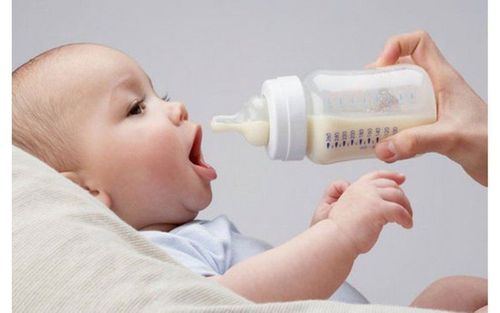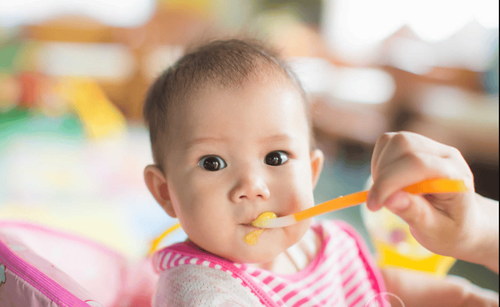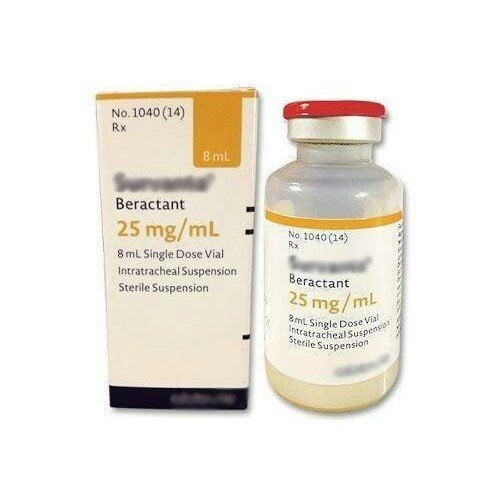This is an automatically translated article.
The article was professionally consulted by Specialist Doctor II Cao Thi Thanh - Pediatrician - Pediatrics - Neonatology Department - Vinmec Hai Phong International General HospitalChoosing the right time to practice weaning for babies sometimes makes many mothers wonder, especially in premature babies. However, there is a need for a more active weaning diet in premature infants, ensuring adequate energy supply needed for timely development as other children of the same age.
1. When should we start solids in premature babies?
Premature babies have very different nutritional needs than full-term babies. Meanwhile, current nutrition guidelines on introducing solids at 6 months of age mainly focus on full-term infants.
However, this is not the same as premature babies. Giving solid foods to a baby before his or her digestive system is ready can increase the risk of an allergic reaction. Conversely, if introducing solids is too late, your baby may be very reluctant to accept new foods. In addition, babies will also face the risk of iron deficiency anemia because iron stores are about to be depleted while the amount of iron in breast milk is very low.
Thus, based on some available evidence, the appropriate time to choose to start solids in premature infants is three months of age (calculated from the due date of birth, which is earlier than the actual age of the baby). young). At the same time, the latest deadline to introduce solid foods to babies must be before seven months of age (calculated by actual age from birth).
As a general rule, most healthy premature babies will be ready to start a solids diet at five to seven months of age (in actual terms). About the exact time during this about two months will depend on the baby's gestational age, physical development ability and especially when the baby is observed showing signs of readiness for solid foods.

Trẻ sinh non cần được cung cấp dinh dưỡng đầy đủ
2. What are the signs of readiness in a premature baby for solid foods?
Before starting the transition to a solids diet, a premature baby should have at least some of the following:
Be able to sit firmly with very little support on an adult's lap or in a shift chair Can hold has his or her head in a stable position Often makes hand or toy movements in the mouth Knows how to turn eyes, head and mouth open toward a spoon containing food
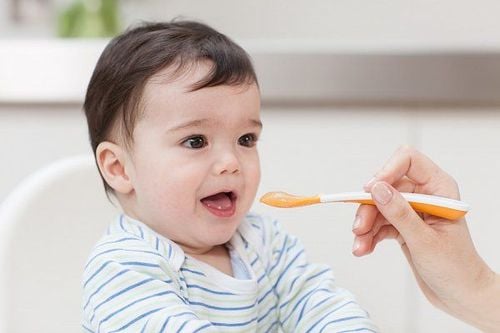
Trẻ sinh non chuyển chế độ ăn dặm
3. How to start weaning in premature babies?
When children reach the age to be ready for solid foods, they will tend to enjoy watching others eat. At this time, parents should let children sit at the same table with family meals to help them learn about meal times.
When feeding, place your baby in a safe place, on a sturdy upright chair and he can reach for food easily with his or her own fingers. Feeding the baby while sitting on the lap of an adult can also be done, but this position will limit face-to-face communication with the child. It's best to place your baby on a high chair that is proportionate to the dining table with the rest of the family.
Choosing the best time to introduce solids in premature babies begins when the baby is most comfortable during the day, usually around mid-morning after a nap. Before starting, you should still give your baby some breast milk or formula. As a result, the baby will not be too hungry and will be excited to explore new foods.

Tập ăn dặm cho trẻ sinh non
You can use a small plastic teaspoon and place the food between the baby's tongue. It is advisable to start the first time with just one or two teaspoons of this and gradually increase the amount over the following days. Many babies will spit food out when they put it in their mouth and react the first time; At this point, you shouldn't be upset or disappointed and stop, will try again in a few days.
Besides, playing with food is also an important part of learning weaning. Therefore, the mother should wash the baby's hands thoroughly, prepare a clean plastic sheet with large-sized blocks of food so that the child can both play and experience the taste based on the flavors of many varieties. Various foods on his own fingers.
4. What are the first foods to introduce weaning in premature babies?
Food used for weaning in premature infants in the first meal should be smooth or creamy and not lumpy or lumpy. Try a new food every two to three days.
Suggestions for you to choose nutritious food for your baby's weaning are as follows:
Cereal for toddlers with added iron Meat, chicken, fish, eggs, pureed beans Ripe avocado, apples, bananas, potatoes... Soft bread, porridge, cheese, yogurt Mothers need to know that children still have a reflex to chew soft foods even if they don't have teeth yet. So, once your baby has learned to eat soft foods, you can move on to more solid or slightly chewy foods so that your baby can learn to respond to new textures.
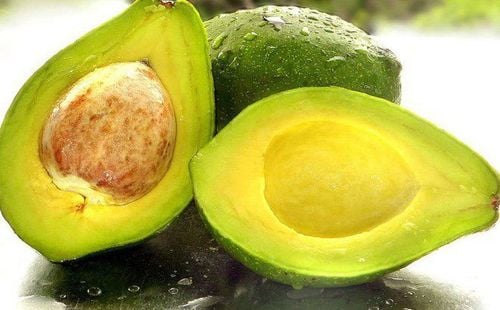
Bơ chín phù hợp cho trẻ ăn dặm
5. How to handle some problems when training babies to eat solids
5.1. Child refuses solid foods When a child refuses to accept solid foods instead of milk, the mother should not try to force the child. Babies can still refuse new foods for a variety of reasons, such as being unwell, tired, or teething.
Time of a solid meal should not last more than 30 minutes. If it lasts too long, the baby will become bored and no longer interested.
Signs that your baby doesn't want to continue solids:
Closes mouth Pushes spoon or spits food Turns head away Loss of interest or cries loudly.

Trẻ ngậm miệng từ chối thức ăn dặm
5.2. Baby refuses to accept changes in food textures Some premature babies have difficulty accepting smooth foods and turn to more lumpy or lumpy foods, especially those that have been raised for a long time. tube feeding.
In this case, be patient and gradually increase the texture of foods by introducing soft mashed foods such as bananas or avocados.
Another way for babies to accept solid foods more easily is to let them pick up foods with their hands and put them in their mouths like sucking on a toy (self-directed weaning). At that time, children may be less reluctant because they have the initiative in controlling what goes in their mouth. Suitable foods for children to try weaning themselves are ripe, peeled and soft textured fruits such as bananas, pears and watermelons; cooked, tender vegetables such as carrots, zucchini, pumpkin, and broccoli; slices of soft bread, cheese...
5.3. Babies who eat too little In most cases, healthy premature babies will still have an appetite reflex when hungry. It is important for mothers to provide a variety of different foods to ensure a balanced diet for their baby.
If your baby eats too little and you are worried about your baby's growth, review how to introduce solids properly instead of forcing your baby to drink more milk. It is the consumption of too much milk that will make the child lose his appetite and therefore no longer want to explore new foods. At the same time, you should consult the guidance and experience from other mothers, pediatricians or nutritionists to quickly improve this situation.

Cha mẹ không nên ép buộc trẻ ăn thêm
5.4. Babies born prematurely have a higher risk of food allergies than full-term babies. However, this is not a reason to delay or limit the introduction of solid foods in premature infants.
In fact, introducing children to a variety of foods from the beginning is the best way to reduce the risk of food allergies later in life.
In short, choosing the right time to start feeding preterm babies will not be too difficult if the mother is fully equipped with the above knowledge. Weaning not only helps premature babies receive a variety of nutrients needed for their development, but also ensures the best growth for babies like full-term babies.
Besides, parents also need to supplement their children with essential micro-minerals such as zinc, lysine, chromium, selenium, vitamin B1, ... to fully meet the nutritional needs of children. The addition of these essential vitamins also supports digestion, enhances nutrient absorption, improves anorexia, and helps children eat well. Parents can simultaneously apply dietary supplements and functional foods derived from nature for easy absorption. The most important thing is that improving your baby's symptoms often takes a long time. Combining many types of functional foods at the same time or changing many types in a short time can make the baby's digestive system unable to adapt and completely not good. Therefore, parents must be really patient with their children and regularly visit the website vimec.com to update useful baby care information.





